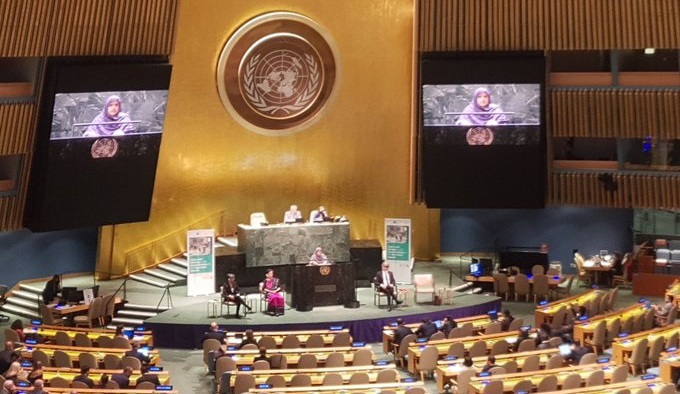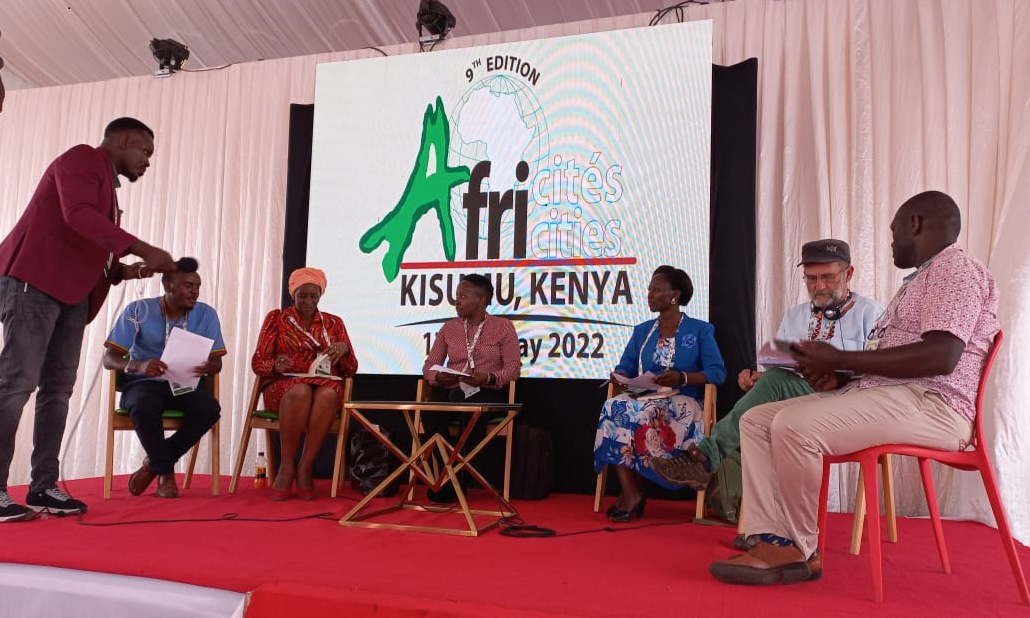
16
April 2014, New Delhi
At an event organised in New Delhi on 16 April 2014, Housing and
Land Rights Network (HLRN) launched its new publication titled, How to
Respond to Forced Evictions: A Handbook for India.
Justice A.P. Shah, former Chief Justice of the High Court of Delhi and Chairperson,
Law Commission of India, released the Handbook and strongly criticised the
Indian state for its inability to control forced evictions, which are carried
out across the country without due process and adherence to the law. He
stressed that, “Those living in informal settlements help the rest of the city
to live a decent life. They deserve protection and respect of the right to life
and dignity, which the Constitution of India guarantees them.”
Explaining the
rationale behind the publication, Shivani Chaudhry, Executive Director,
HLRN, said: “The fact that we need to publish a book on how to deal with forced
evictions, indicates a glaring failure of the Indian state to protect the human
rights of its people, especially the most marginalised. Since independence, at
least 70 million people have been displaced across India. A large majority of
them have no access to remedy and have to contend with perpetual homelessness
and insecure living conditions. Recognising the human rights violations inherent
in acts of forced eviction and the virtual impunity of the state, often in
collusion with the private sector, HLRN has produced this Handbook to assist
affected
persons and to help end the widespread practice of forced
evictions.”
The HLRN Handbook provides
information on national and international laws and policies, which protect the
human right to adequate housing as well as other human rights in the event of a
forced eviction. It explains the international guidelines that must be followed
by state and non-state entities to protect human rights before, during, and
after evictions. It also suggests strategies, mechanisms, tools, and actors to
engage with, in order to prevent forced evictions and seek justice. The
Handbook can be used by communities threatened with evictions, displaced
persons, human rights organizations, human rights defenders, and academic and
independent institutions.
The book release was followed by a panel discussion on Evictions
in India: Rule of Law and Role of the State. Independent experts discussed
various dimensions of the issue of forced evictions, including state acts of
commission and omission, and solutions to curtail the occurrence of demolitions
and evictions. Though several progressive provisions exist in Indian law, the
state flagrantly violates them. It also does not implement court orders that
have upheld the human right to adequate housing as an extension of the right to
life and protected the rights to resettlement, land and property.
Mr Satyabrata Pal, former diplomat and former member of the National Human Rights
Commission (NHRC), mentioned that through his experience at NHRC, he had
realised that in cases of evictions, “The State was usually complicit, the
judiciary often helpless and society largely indifferent. The victims were
therefore left without shelter, succour or support.”
Ms Kalyani Menon-Sen, feminist activist and independent researcher, while
speaking about the disproportionate impacts of evictions on women, asserted that,
“Eviction is a political issue. It has to be tackled politically.”
Mr indu prakash singh, Convenor, National Forum for Housing Rights, stated that,
“The government works in a default mode, as far as housing is concerned. How
else do you explain the growing housing deficit to the tune of 24 million
houses in urban areas, 99.8 % of which is for Economically Weaker Sections
(EWS) and Low Income Groups (LIG) sections, and the government still calling
residents of informal settlements as ‘illegal’ and ‘encroachers’? Why don’t we
call the complicity of the government in perpetrating and perpetuating this
situation as ‘illegal’ and as an affront to the Constitution of India, various
landmark High Court and Supreme Court of India orders, and UN Charters,
Covenants and Conventions?”
Shivani Chaudhry of HLRN stated that government officials and private
actors responsible for acts of forced eviction in contravention of the law must
be investigated and tried for multiple violations of human rights.
HLRN,
in collaboration with its partners, has translated the Handbook on Forced
Evictions into Hindi, Tamil, Gujarati and Marathi, and will be translating it
in other India languages as well. HLRN hopes that the Handbook will be used
across the country to advocate for the cessation of forced evictions; for the
protection of human rights; for the implementation of national and
international human rights law, and court judgements; and, for improved state
accountability.
* To download the publication “How
to Respond to Forced Evictions: A Handbook for India” and translations in other
languages, please see: www.hic-sarp.org
For more information, please
contact: (+91) 9818 205234 / 011-2435-8492
Housing and Land Rights
Network
G-18/1 Nizamuddin West, Lower Ground
Floor


